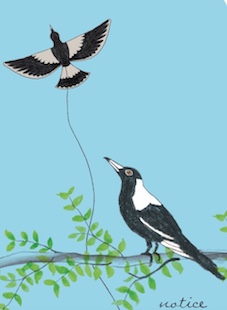At the end of a recent workshop, I was approached by a participant wanting to share her reflection with me:
“I used to think that inquiry was all about planning and teaching units that got kids asking questions, investigating and taking action. I still think that but now I think it’s so much more! I never realized that this is actually about ME as an inquirer. I’ve never seen myself that way - as a researcher in my classroom. I feel like I’m going back to school with a new teacher identity.”
Those are the kinds of reflections that make all the preparation, the jet lag, the homesickness etc. worthwhile…
In an inquiry classroom, the teacher is an inquirer. They see themselves as a participant in the journey itself-figuring out the next move both for and with their learners. They are as fascinated by discoveries as their kids. When, for example, the class is Skyping an expert to help them find out more, the teacher is leaning in, eager to find out more and as curious and hungry to learn as the students.
Secondly - this work includes continuous inquiry into our teaching itself. Inquiry teachers are often ‘consciously competent’, making intentional moves in the choreography of instruction with a view to continuous improvement. For example, they might notice the impact of their questions on the way students share their thinking. They are often ‘watching themselves’ and making these personal observations explicit to learners:
‘Hmmmm I’m not sure that was the best question to ask you. I think it was too narrow. I’m going to try a different question now and see if that helps open up the conversation’
This willingness to admit uncertainty, to be transparent and vulnerable can have a profound effect on the balance of power in the classroom and, in turn, nurture greater agency in our learners.
And finally, inquiry teachers see themselves as researchers as they observe and listen to learners. In conversation with learners, observing learners at play, taking time to look carefully at artefacts of learning such as drawings or written pieces, we ask ourselves the all-important questions: ’ What am I noticing? What is being revealed to me? How might I respond? And when we do this in collaboration with other educators we gain further insight and perspective. In short, we bring an inquiry stance to our teaching.
Noticing is one of the key practices in the art of inquiry. I tend to see this practice at its finest in the early years’ context. Every teacher, regardless of the age group with which they work, should spend some time in a preschool/kinder with a skilled inquiry educator.
Inquiry is so much more than planning and teaching ‘units’, designing more investigative tasks or providing more choice. True inquiry goes to the core of our identity as teachers. As has been said many times, it’s about the way we see ourselves and the way we see the learners with whom we work. It’s the metaphors we carry about ourselves as teachers. I find it helpful to see myself to be a researcher as I teach, prompting me to slow down - and notice.
© Kath Murdoch ‘Art of Inquiry’ 2019
How do you nurture the practice of noticing into your daily interactions with learners? Are you an inquirer?

